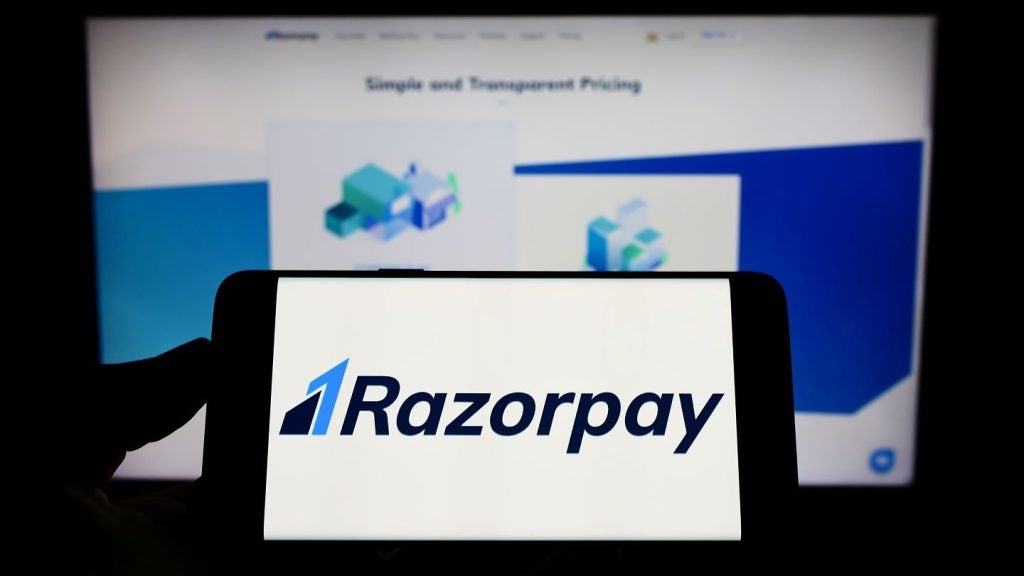starting to emerge as consolidation and joint ventures continue to
gather pace across the industry. Some of the industry’s top players
talked to William Cain about what the winning business
model of the future would look like.
are set to dominate the European merchant acquiring industry in the
years to come, according to senior industry figures. Banks will
increasingly look to offload acquiring businesses and concentrate
on their core business of selling loans and taking deposits as the
introduction of the Single Euro Payments Area (SEPA) takes hold
across the European Union (EU).
acquiring market, taking advantage of joint ventures and
white-labelling agreements with banks to gain banking licences
which will allow them to operate cross-border.
strategy at Euronet, which jointly-won Cards International’s
Merchant Acquirer of the Year award at the Cards and Payments
Europe 2008 conference in June with ICICI, said in three years
there were likely to be five or six big cross-border acquirers
which service merchants cross-border. Rikli used the example of
merchant OMV, Austria and Central Europe’s largest oil and gas
corporation, which Euronet signed a deal with last year.
contracts to sign onto the central platform of Euronet,
illustrating the opportunity cross-border acquirers present for
multinational merchants.
by the merchants, people like Tesco or British Petroleum, which
operate in numerous countries, are not willing to work with
different acquirers in each country with different terms, merchant
service charges (MSCs), operations and platforms. They want to have
one acquirer across all of their markets.”
often set up and owned by banks in their own country, had little
ambition to expand overseas. But some of these domestic acquirers
generate 30-40 percent of their income from multinational
merchants, which are prime targets for cross-border acquirers.
Rikli said domestic acquirers would either lose the multinational
merchant businesses, or the shareholders would have to work out a
way to sell the business.
domestic merchant acquiring and processing to cross-border
acquiring. There will be, over the next couple of years, clear
winners and losers. And if you see who could be in that handful of
cross-border merchant acquirers, I only see a couple of them:
Barclaycard, Deutsche Bank, First Data, Elavon and maybe Atos
Worldline and Euronet too. They are already well positioned and
really understand the business.”
field in the payments industry across Europe, has always been seen
as a driving force behind consolidation in the processing and
merchant acquiring industries. And now, with deals like HSBC’s
joint venture with Global Payments (see ‘Acquisition’ below) and
numerous mergers and acquisitions across Europe, the likely winning
business models of the future are becoming apparent.
specialist at consultancy AT Kearney, said banks would not all look
to offload their acquiring operations, particularly those with the
scale to take operations in house, because of the huge opportunity
for profit merchant acquiring brings.
been reconsidering the value of merchant acquiring during the last
few years. The services that were once considered secondary and
delegated to acquiring consortiums servicing multiple banks within
a country have now regained attention as banks are either reaching
a size through acquisition that justifies the insourcing of the
capability or that are now looking at acquiring as a future source
of revenues.
issuing side are under threat due to a number of factors, merchant
acquiring can still offer operating margins that, in the case of
sufficient economies of scale and best practices, can get close to
a 20 to 30 percent range.”
Value-added services
Value-added services at the point of sale (POS) are another big
trend in the merchant acquiring industry at present. As well as
strengthening merchant loyalty with the acquirer, value-added
services help diversify the revenue stream for acquirers.
Roger Alexander, CEO of European merchant acquirer Elavon, said
adding value at the POS was important in addition to driving costs
out of the business (see CI 389). Elavon’s key services are dynamic
currency conversion and tax-back, which are seen as particularly
innovative ones in the industry.
value-added service in recent years has been mobile top-ups. Bill
payment at the POS has also proven a successful additional source
of revenue for merchants and service providers. It has provided
value to customers in areas with limited presence of bank and post
office branches, according to Burelli.
acquiring at First Data and Euronet, said it is important to tailor
the service you offer.
 He said: “It all
He said: “It all
depends on the kind of merchant you have. You will not go into a
high-end clothing store and do phone recharge. It also depends on
the country you are in. Bill payments is a big thing in European
countries.
their electricity bills at the bank. If you can find a way to
organise that with the utility companies then bill payment becomes
an attractive option. The problem is in some places there are a
huge number of utility providers, so it really depends on the
environment you are in, but the most successful so far has been the
mobile phone recharge.”
and payments industry, but does not directly impact merchant
acquirers. MasterCard has appealed a decision by the European
Commission for Competition which ruled its cross-border
multilateral interchange fee illegal, while an investigation was
also recently launched into Visa’s interchange fees.
of income for acquirers, who pass on the fee to issuing banks as
interchange. But the increasing regulatory focus on interchange was
identified by one industry expert as another reason why bank card
issuers are looking to move out of the market of acquiring.
sense. It matters to the merchant, but to the processor or the
acquirer, it is not an issue. That is probably another reason why
banks are allowing acquiring to go away. When they were both the
acquirer and the issuer, they could not throw their hands up in the
air and say: ‘Hey, it’s not me, it’s Visa that makes this
interchange’.
gain anything from interchange. So acquirers are well positioned:
they are not tarred with the interchange brush, in the sense they
are not banks that do issuing.”
money from interchange when it is altered, whether the change is
upwards or downwards.
likely to be passed on entirely to the bigger players, it is a
common practice for some processors to squeeze 0.5 percent to 1
basis point out of any interchange alteration to smaller merchants,
who tend not to be as savvy as their larger counterparts. Because
the volumes in the industry are so big, such small margins can add
up to significant increases in profit. The same is possible if
interchange moves up.
Services Directive, which will come into force in November 2009,
and is driving further reform in the merchant acquiring industry.
It is meant to ensure EU customers receive standardised conditions
for payment services. The directive is likely to promote greater
transparency within the market as well as further unbundling of
merchant service fee pricing, according to Burelli.
US, but has not been used extensively across continental Europe. It
involves charges for different products like charge backs, manual
data entry and the range of different transactions which can be
made. The process became more popular in the UK when First Data
introduced it to the market, and it looks set to continue across
Europe. Hites said unbundling presented an opportunity for
acquirers to improve their bottom line.
when you unbundle a service like that and put it into 15 different
products, you are going to find a way to make more money doing
that.”
ACQUISITION

US Tariffs are shifting - will you react or anticipate?
Don’t let policy changes catch you off guard. Stay proactive with real-time data and expert analysis.
By GlobalDataGlobal Payments pays over odds to become merchant acquirer with
truly global reach
Global Payments overpaid for its acquisition of a 51 percent stake
in its merchant acquiring joint venture with HSBC, but has become
perhaps the only truly global merchant acquirer, according to a top
industry figure.
in HSBC’s merchant acquiring business, which had revenue of around
$229 million and around 135,000 merchant outlets in 2007. HSBC
contributed its existing merchant acquiring business in the UK to
the joint venture.
 Global
Global
Payments, an electronic transaction processing provider, now has
access to 15 percent of the UK market, but looks
to have paid more than other have in comparable deals in the
UK.
but would give Global Payments access to banking licences which can
be exported all over Europe meaning they can acquire merchants
across the continent.
well positioned, because they’re strong in the US, they now have
Western Europe covered, a reasonable if unexploited business in
Eastern Europe and they’ve got the Asia-Pacific region pretty well
covered.
worldwide processing, a Sony, Hewlett Packard, someone like that,
and you want a single source provider, how many single providers
are there?
parts of Asia-Pacific as Global Payments is, and a few others are
either, so I think they are well positioned now. Western Europe was
a piece of the pie they did not have sorted and this really helps
them, which is maybe why they overpaid.”
marketing alliance in which the bank will refer its customers to
the joint venture for merchant payment processing services. And the
source said HSBC’s brand would be an important part of the
deal.
significant with small merchants. The bigger players will know who
the big players are and they tend not to care so much about the
brand names, they care about who can do their processing.
you are trying to acquire.







